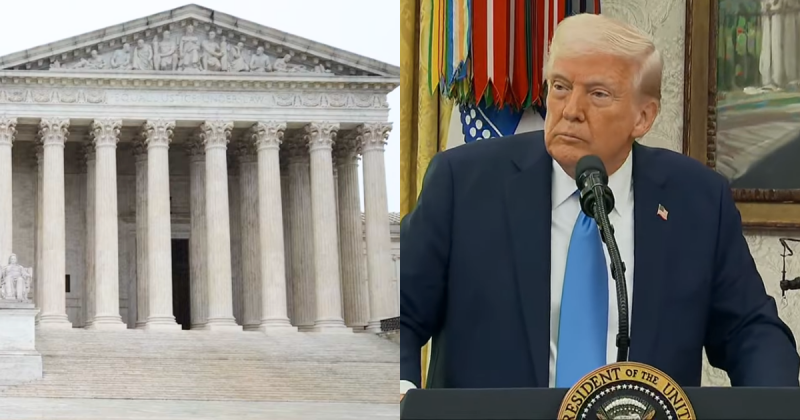The Supreme Court handed President Donald Trump major victories Monday, reinforcing his authority over federal agencies and immigration enforcement amid raising concerns among lower court judges about the high court’s growing influence in politically charged cases.
In a pivotal regulatory ruling, the Court allowed Trump to remove Democratic Federal Trade Commission (FTC) Commissioner Rebecca Kelly Slaughter, pausing a lower court order that had temporarily reinstated her.
Chief Justice John Roberts issued the stay, moving Slaughter back to the list of former commissioners while the case continues.
The administration argued that limits on removing commissioners improperly constrained executive authority under Article II of the Constitution, affirming presidential oversight over independent agencies, The Post Millennial reports.
Slaughter and fellow Democrat Alvaro Bedoya had challenged their firings in court, citing a 1935 precedent that restricted presidential authority to remove FTC commissioners without cause.
Bedoya later withdrew from the case, leaving Slaughter’s challenge as the central issue. Monday’s ruling returned her to former commissioner status, underscoring the administration’s position that such removal restrictions infringe on executive power.
On the same day, the Supreme Court ruled in favor of the administration in a high-profile immigration case involving Los Angeles.
The 6-3 decision blocked a lower court ruling that had limited investigative stops in certain areas, including bus stops and day labor sites.
Officers may question individuals based on location, type of employment and language, provided there is reasonable suspicion of unlawful presence.
Justice Brett Kavanaugh emphasized that legally present individuals are promptly released, while authorities retain necessary tools to enforce immigration laws effectively.
The immigration ruling clarifies the legal threshold for stops, balancing civil liberties with enforcement needs.
Kavanaugh noted that in areas with high populations of noncitizens, factors like location, occupation and language may justify reasonable suspicion, but apparent ethnicity alone cannot.
Experts say the decision strengthens officers’ ability to enforce immigration laws while ensuring lawful residents are not targeted unnecessarily.
Resist the Mainstream highlighted on Friday how lower federal judges have criticized the Supreme Court’s frequent emergency rulings favoring the Trump administration.
NBC News reported that a dozen judges, speaking anonymously, described the court’s repeated interventions as heavily favoring Trump without detailed reasoning.
Of the seventeen rulings cited, five were issued with minimal explanation, prompting warnings that the practice could strain relations between the judiciary and the executive branch and even create safety concerns.
Taken together, Monday’s rulings represent substantial judicial wins for Trump, consolidating presidential authority over executive agencies and clarifying immigration enforcement powers.
The FTC decision reinforces the president’s ability to remove executive officials, while the immigration ruling establishes clear standards for brief questioning of individuals suspected of illegal presence.
Legal observers say these outcomes may set lasting precedents for the balance of power between the judiciary and the executive branch.
Supporters argue the rulings provide clarity on constitutional authority and law enforcement discretion, while critics remain concerned about potential erosion of district court authority.
The Supreme Court’s actions on Monday highlight its decisive role in defining the scope of presidential power and the enforcement of federal laws, marking a significant win for the Trump administration.

